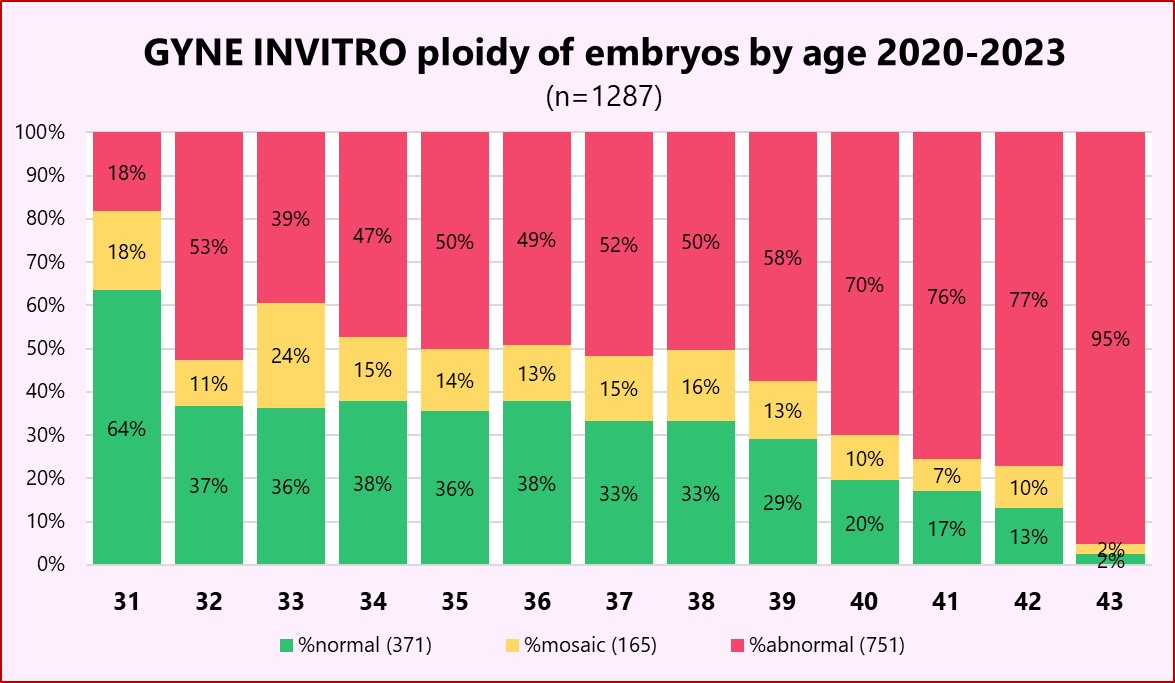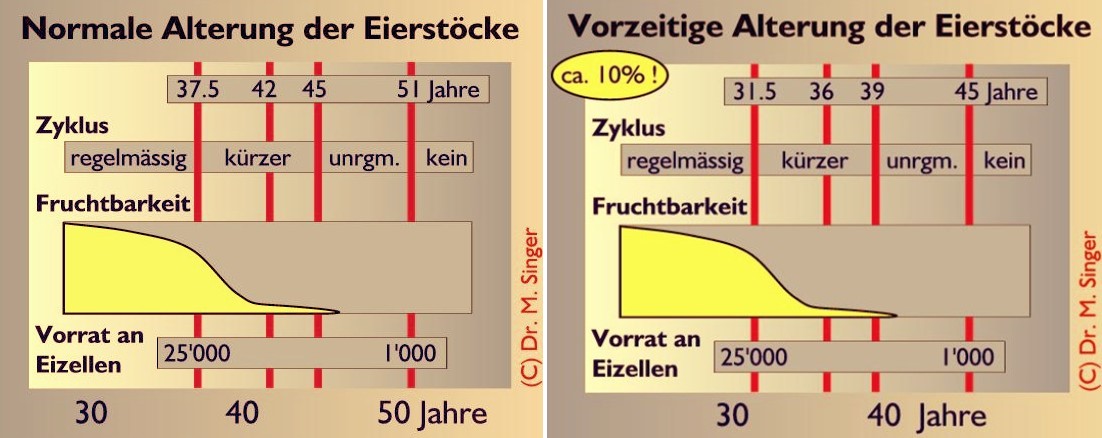Above: Chances of conception in the natural cycle of couples without fertility problems. Humans are fertile year-round, but not very efficiently, even in young years - the majority of embryos formed do not implant, even in the natural setting.

In parallel, the proportion of genetically normal embryos in our test tubes (in green in the graph above) declines, and so does the number of available eggs per IVF attempt. With pre-implantation testing, we can avoid transferring embryos without chances to develop, but we cannot solve the problem of the biological clock sustainably. It is definitely preferable to have children earlier!

Our readers should allow for some nostalgia (above) - my old German graphs from 2004 (after the publication of D. Nikolaou and A. Templeton in Human Reproduction 18:1137,2003) are still valid. When the average woman experiences her sharp fertility decline at 37 (left graph), some 10% will have it earlier and enter menopause at 45. Because fertility decline and menopause seem to be quite constantly 13 years apart (sometimes in a hereditary fashion), those women need to hurry already at 32 (right graph)!
We still lack sufficient instruments for early recognition of those women who will develop age-related fertility problems as early as in their thirties. The measurement of AMH hormone and counting so-called antral follicles at trans-vaginal ultrasound allow a certain estimate, so doing this at a yearly check-up at 30 years makes sense and can unmask an often unwelcome truth. Moreover, we have identified risk factors:
Risk factors for premature ovarian ageing
|
- Smoking - diminishes blood flow to all organs and induces earlier menopause;
- Endometriosis and pelvic infections - destroy ovarian tissue;
- Familial early menopause;
- Surgical interventions, radio- and chemotherapy for cancer.
|
Consequences
|
- Find a good balance between career and family planning.
- Women over 35 have no time to waste! They should seek specialized medical help after as early as six months of unsuccessful trying for a baby.
|
Assisted reproduction like IVF does NOT compensate for aged and/or too little eggs!